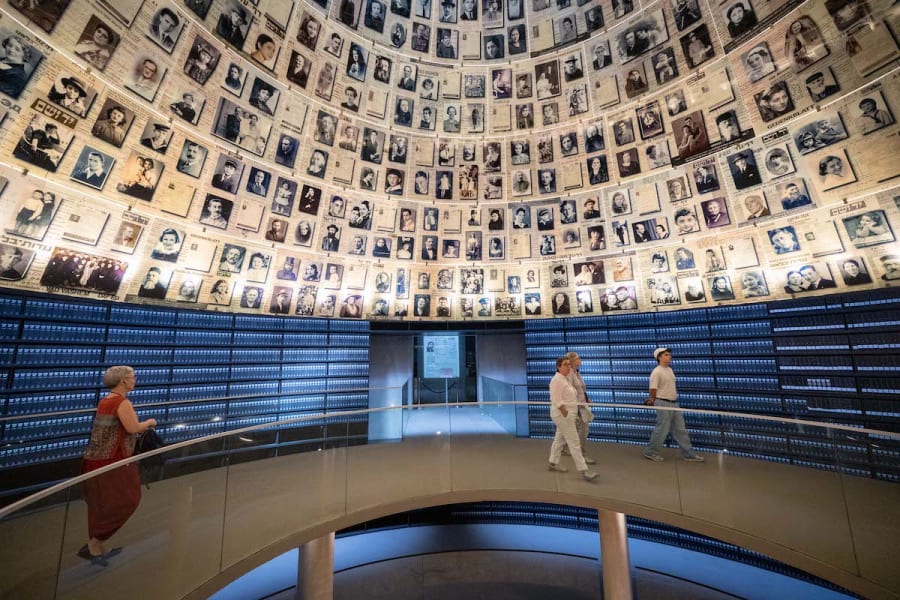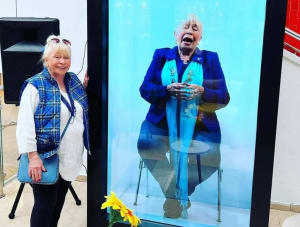As time running out for Holocaust survivor documentation project, Israel allocates more funding

The Israeli government decided last week to expand a Holocaust documentation project, an initiative aimed at the creation of a lasting memorial for Holocaust survivors by allocating 7 million NIS (approximately $1.8 million) to the venture.
The '99th Minute’ project is being led by Social Affairs Minister and Minister for Diaspora Affairs Amichai Chikli and Uri Maklev, Israel's deputy minister responsible for development and haredi transportation.
Chikli emphasized that time was running out and that this would be Israel’s “final opportunity” to gather testimonies from Holocaust survivors who are still living.
“We have now passed a government decision of more than NIS 7 million to document the last survivors of the Holocaust as part of the ‘99th Minute’ project”, Chikli posted on X, formerly Twitter, on Wednesday.
Chikli added that Holocaust survivors who did not wish to speak about their experiences when they were younger are now asking to testify about the horrors they encountered.
“More than once, Holocaust survivors who have avoided testifying throughout their lives request to testify in their last days, and the purpose of this decision is to make a last effort to collect the last living evidence as soon as possible,” Chikli noted.
“Commemorating the Holocaust is our sacred duty as a society and as a government, and we will use all the resources we have to complete this endeavor in the most appropriate manner,” Chikli emphasized.
In 2022, the Israeli government began to collect photographic testimonies from Holocaust survivors worldwide in order to make them available to the public for educational purposes, as well as to fight growing antisemitism worldwide.
The testimonies will reportedly be made available in multiple languages and will be stored in an open-access database.
According to the Jerusalem Post, the expanded funding also includes providing support to public institutions engaged in Holocaust commemoration efforts, such as “testimony meetings, conferences held outside of Israel for Jewish communities, support for testimony meetings by first-degree relatives or grandchildren of Holocaust survivors, and financial assistance for organizations commemorating the Righteous Among the Nations."
In addition, the amendment will also cover funding for commemorations of Holocaust survivors who lost their lives while serving in the Israel Defense Forces (IDF).
Maklev emphasized how important it is to preserve “authentic and traditional documentation of Holocaust survivors' memories to safeguard the spirit and bravery of their stories for future generations.”
As of April 2023, there were 47,199 Holocaust survivors living in Israel, according to figures published by the Holocaust Survivors’ Rights Authority, which is part of Israel's Social Equality Ministry.
The average age of Holocaust survivors is 85, with about 30,000 survivors having reached the age of 90 or above. The youngest Holocaust survivors are about 76 years old.
Despite their difficult and traumatic pasts, Holocaust survivors in Israel are among the poorest population groups in Israel. Roughly one-third of survivors are estimated to live in poverty and need the help of private charities to be able to subsist.

The All Israel News Staff is a team of journalists in Israel.
You might also like to read this:















